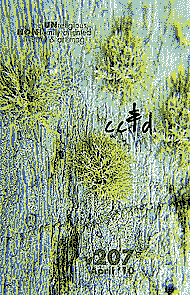



 This writing was accepted for publication
This writing was accepted for publicationin the 84 page perfect-bound issue... cc&d magazine (v207) (the April 2010 Issue) This is also available from our printer as a a $7.47 paperback book (5.5" x 8.5") perfect-bound w/ b&w pages
|
|
Order this writing in the book (bound) cc&d prose edition |
 |
order the 5.5" x 8.5" ISSN# book order the 8.5" x 11" ISBN# book |
| ||
![]()




